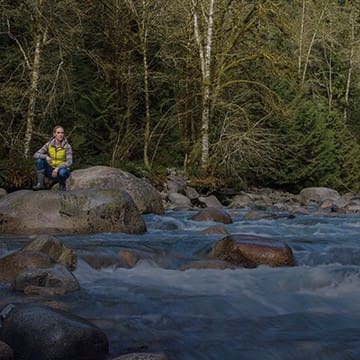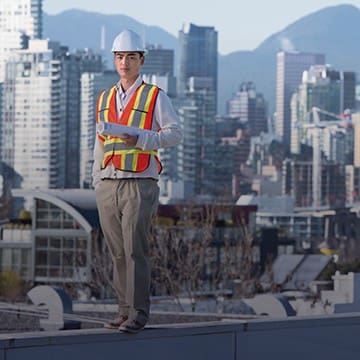
Guest Speaker Series: Providing Water After a Catastrophic Event

UBC’s Master of Engineering Leadership students recently had the opportunity to connect with and learn from Cristina Fonseca, a Senior Associate at Stantec.
She hosted a webinar focusing on how to plan for water provision in the aftermath of a major catastrophe, such as an earthquake, while highlighting some of the challenges that surround these types of exercises, from both a logistical and economic perspective.
An Expert in Emergency Planning
For more than 23 years, Fonseca has been working in the planning, design, start-up, and commissioning of water treatment facilities. Holding a Diploma in Chemical Engineering with a Minor in Biotechnology from the Technical University of Lisbon and a Ph.D. in Civil and Environmental Engineering from the University of Colorado at Boulder, she has a strong, global academic background in her area of study.
An expert in her field, Fonseca has experience developing emergency and contingency plans for water treatment plants and has worked with numerous operators optimizing treatment processes and implementing monitoring protocols.
In her current role as a Senior Associate at Stantec, Fonseca utilizes her expertise in water treatment processes to lead new projects and innovate within her industry throughout the province. Recently, she has started to collaborate with municipalities across the Lower Mainland developing Emergency Water Supply and Distribution Plans. She completed the Emergency Supply and Distribution of Drinking Water study for the City of Maple Ridge and is currently working on similar assignments with the City of New Westminster and the City of Port Moody.
Are we prepared to provide water in the aftermath of catastrophe?
In her presentation, Fonseca focused on the following question: in the aftermath of a major earthquake or other disasters that have resulted in city infrastructure damage, are municipalities and residents prepared to be without water?
She highlighted the highly interconnected networks of dams, power, pipes, and roads that provide water and how, if this system is compromised, access to water is undermined. The smooth running of this system is critical to the safe water that comes out of our taps.
Ultimately, Fonseca shared that communities, in general, are not prepared to provide water to their community members should a catastrophe result in massive disruption to their water infrastructure. However, within British Columbia, there is an impetus to address this issue and ensure that adequate solutions are available for municipalities.
Fonseca is one of the key leaders in this change. Her collaborative work with municipalities has focused on understanding how to adequately plan for catastrophic events and identify potential options for the continuation of water supply. These options might include mobile and permanent water treatment and fill stations, water tankers and water bladders, and secondary sources of water (for example, surface water sources). This work also includes considering the viability of any other alternative water sources.
Inspiring the next generation of leaders in engineering?
MEL students who attended the presentation, especially Urban Systems and Integrated Water Management students, gained a better understanding of the importance of preparing for potential disasters. Further, they learned how the planning process for disaster preparedness takes place.
Seminars like these highlight areas for innovation within their field and inspire positive change-making by sharing the insights of current industry leaders.
Is your goal to be a change-maker in your field? Explore UBC’s Master of Engineering Leadership and how it prepares you to become an industry leader.
Integrated Water Management
Apply your technical and leadership skills in developing sustainable water management solutions.
Read MoreUrban Systems
Application Deadlines
The online application portal for the January 2025 has closed.
Get ready to apply!
Admissions for the 2026 intake will open on January 1, 2025.
How to ApplyAssess your Eligibility
Determine if your professional experience and academic background make you a fit for your desired program.
Start AssessmentJoin us for an
Info Session
Sign up for our latest online information sessions and discover what our programs have to offer.
Sign Up Now

